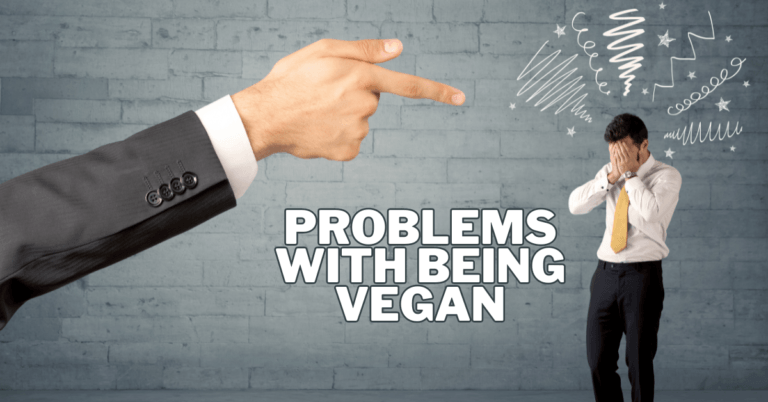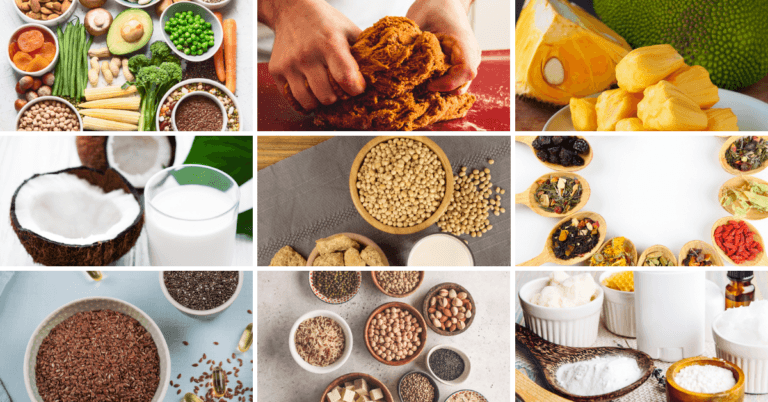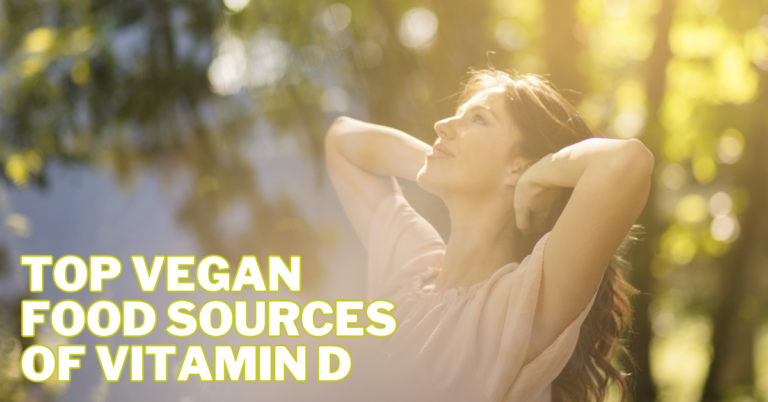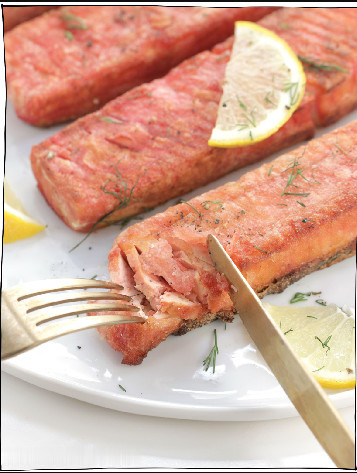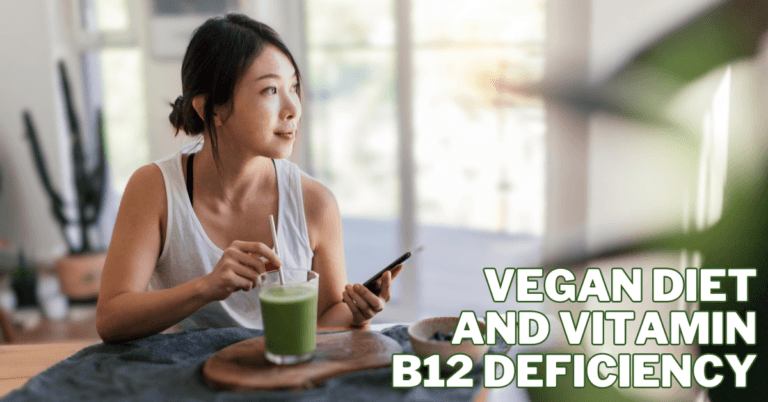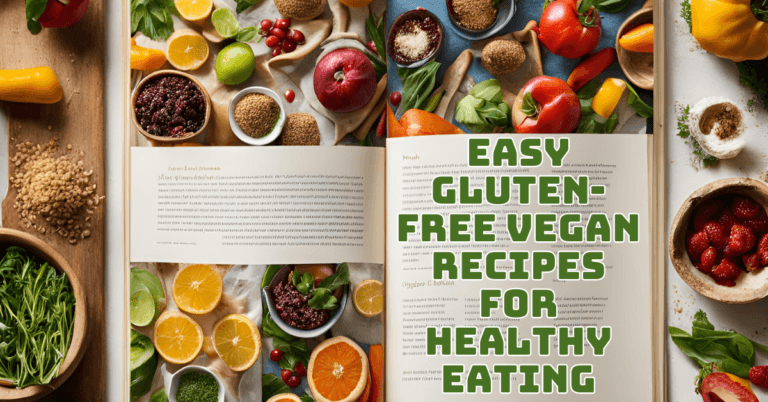Complications Of A Vegan Diet
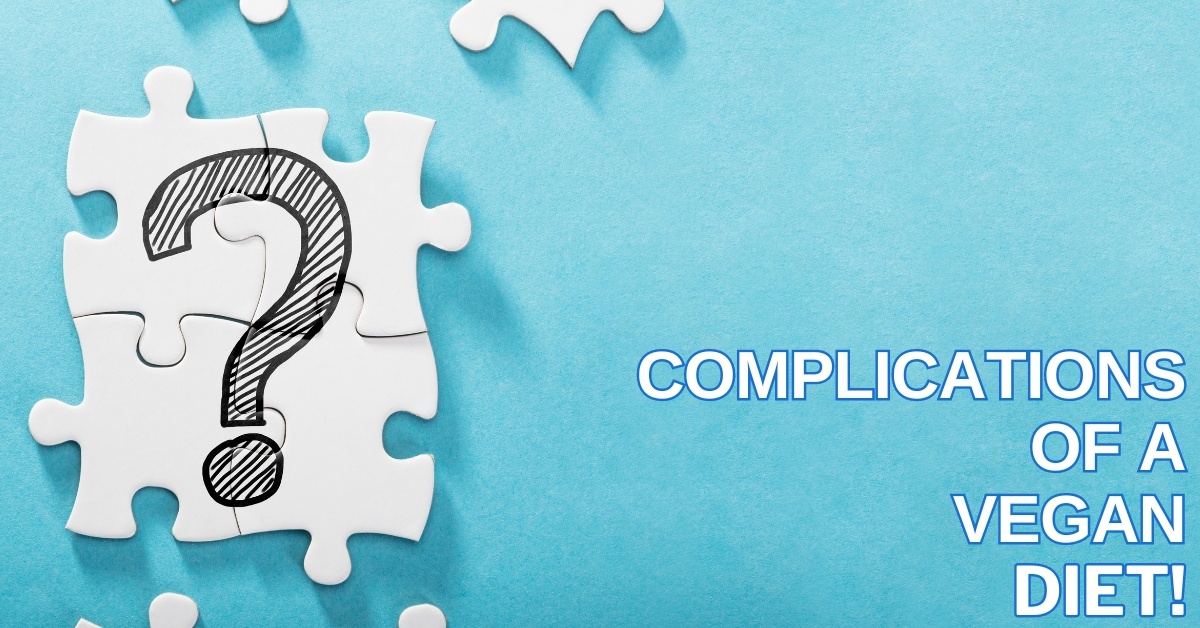
Complications Of A Vegan Diet
The popularity of veganism as a dietary choice has sparked numerous debates and discussions regarding its health implications.
While many individuals adopt a vegan diet for ethical, environmental, or health reasons, it's essential to acknowledge that, like any dietary approach, veganism has potential complications and challenges.
Navigating the intricacies of a vegan lifestyle, from nutrient deficiencies to inadequate protein intake, requires careful consideration and informed decision-making. This exploration will delve into the complications and symptoms of a bad vegan diet.
What Is A Healthy Vegan Diet?
A healthy vegan diet revolves around a diverse selection of nutrient-packed plant-based foods. Fruits, vegetables, and whole grains should be the cornerstones of your meals.
Legumes, such as beans, lentils, and peas, provide a vibrant range of vitamins, minerals, and fiber.
They are excellent protein and iron sources, energizing you throughout the day. Nuts and seeds are your allies for healthy fats and essential minerals, adding richness and texture to your dishes.
Fortified plant milk and yogurts can help bridge the calcium and vitamin D gap.
These nutrients require extra attention to avoid the complications of a vegan diet. To create a well-balanced vegan diet, prioritize whole grains for sustained energy.
Brown rice, quinoa, and whole-wheat bread are excellent options. For various vitamins and antioxidants, include a rainbow of fruits and vegetables.
Stock on colourful peppers, leafy greens, berries, and citrus fruits. Legumes like chickpeas, lentils, and black beans are protein powerhouses.
Remember nuts and seeds like walnuts, almonds, and chia seeds for a dose of healthy fats. To acquire a variety of vitamins and antioxidants, including a rainbow of fruits and vegetables.
Keep plenty of leafy greens, citrus fruits, berries, and colourful peppers on hand. Black beans, lentils, and chickpeas are examples of high-protein legumes.
When looking for a source of healthy fats, consider nuts and seeds such as chia seeds, walnuts, and almonds.
By incorporating these essential components and consulting a healthcare professional, you can create a vegan diet that fuels your body and keeps you thriving.
Complications Of A Vegan Diet
While a well-planned vegan diet offers numerous health benefits, it can also have potential complications.
Understanding these challenges can help individuals make informed choices and develop strategies for a healthy and sustainable vegan lifestyle.

1. Nutrient Deficiencies
Ensuring adequate intake of certain nutrients that are typically better absorbed from animal products is a balancing act for vegans to avoid complications of a vegan diet.
Vitamin B12, vital for healthy nerves and red blood cell production, is scarce outside meat and dairy.
Vegans can bridge this gap with fortified foods or supplements. Iron, another crucial nutrient for healthy blood, presents a similar challenge.
While leafy greens and legumes contain iron, its absorption is lower than meat's heme iron. Pairing these plant-based sources with vitamin C from citrus fruits can help boost iron uptake.
Finally, calcium, essential for strong bones, is readily available in dairy products. However, leafy greens like collard greens and kale and nuts and seeds like almonds and tahini offer vegans an alternative.
Obtaining the right nutrients can be a balancing act for vegans, particularly those normally better absorbed from animal sources.
Fish high in fatty acids are a great source of omega-3 fatty acids, vital for heart and brain health. Although ALA, an omega-3, is abundant in plant sources like flax seeds, our bodies are not as good at converting it into the active forms of EPA and DHA.
Vegans can consider algae-derived supplements to ensure they get these vital fats. Zinc, another nutrient of concern, is critical in immunity and wound healing.
Found abundantly in animal products, vegans can source it from legumes, nuts, and whole grains. However, absorption from plant-based sources can be limited.
To optimize zinc intake, vegans can get creative in the kitchen, employing soaking, sprouting, and fermentation techniques when preparing these foods.
2. Lower Protein Intake
Ensuring adequate protein intake adds another layer of planning for vegans to reduce the complications of a vegan diet.
This vital nutrient is starring in building and repairing tissues, producing enzymes and hormones, and keeping your metabolism humming.
Plant-based sources like legumes (beans, lentils), tofu, tempeh, and certain grains (quinoa, buckwheat) contain protein, but they might not be considered complete protein sources.
The problem is that, in contrast to animal protein, which offers a complete range of all essential amino acids—the building blocks of protein—plant-based protein sources sometimes miss out on one or more of these vital elements.
To overcome this obstacle, vegans can leverage the concept of complementary proteins. This involves combining plant-based proteins daily to create a complete amino acid profile.
For example, pairing rice, which is low in lysine but high in methionine (an essential amino acid), with beans or lentils, rich in lysine but lower in methionine, creates a complete protein source.
Using this method, you can be sure your body will get all the important amino acids required to perform at its best.
Additionally, processed vegan protein powders can be a convenient way to reach sufficient protein intake, particularly for athletes or individuals with high protein needs.
These powders are often derived from sources like soy, peas, or brown rice and are formulated to provide a complete amino acid profile in a single serving.
However, it's important to remember that whole food sources should be the foundation of a vegan diet, with protein powders used strategically to supplement your intake.
3. Social Challenges
As we continue our exploration of the complications of a vegan diet, embracing a vegan lifestyle can introduce unexpected social hurdles.
Dining out with friends or family who aren't vegan can be tricky. Restaurant menus might be a minefield of limited vegan options, forcing you to explain your dietary choices repeatedly.
Feeling like the “difficult one” can be frustrating. However, a little preparation goes a long way. Carrying your own snacks bridges the gap if suitable restaurant options are scarce.
Researching menus beforehand empowers you to suggest restaurants with clear vegan offerings or identify dishes you can easily modify (e.g., requesting a veggie burger on a whole wheat bun without mayo).
This proactive approach ensures you can still enjoy the social aspect of dining out while staying true to your vegan convictions.
Social gatherings centred around food can be a hurdle for vegans. Barbecues and potlucks might seem devoid of vegan options, leaving you feeling left out.
Proactive communication is key here. Openly discuss your dietary needs with friends and family. Don't hesitate to offer a delicious vegan dish to share, showcasing the variety and vibrancy of plant-based cuisine.
Alternatively, suggest hosting a potluck where everyone contributes a plant-based dish. This fosters inclusivity and allows you to enjoy the social aspect of the gathering while staying true to your vegan commitments.
By being prepared and open to communication, you can gracefully navigate social situations as a vegan and even inspire others to explore the world of plant-based foods.

4. Planning And Consultations
As we further explore the complications of a vegan diet, unleashing the full potential of a vegan diet's health benefits hinges on a thoughtful and well-planned approach.
While it can be incredibly rewarding, ensuring you meet all your body's nutritional needs requires careful planning and an awareness of potential shortcomings.
Consulting a registered dietitian (RD) or healthcare professional can be an invaluable investment in your vegan journey, acting as your guide and cheerleader.
An RD collaborates with you to create a customized meal plan that meets your requirements and tastes.
They bring a lot of experience to the table. They'll consider factors like age, city level, and any existing editions.
For example, a young athlete might require a different plan than someone focusing on weight management.
An RD can provide invaluable guidance on incorporating diverse nutrient-rich plant foods into your meals.
They'll help you navigate the world of vegetables, fruits, whole grains, legumes, nuts, and seeds to create a foundation brimming with essential vitamins, minerals, and fiber.
They can also recommend creative culinary strategies to ensure your meals are nutritious but also delicious and satisfying.
Furthermore, an RD can delve deeper into potential nutrient deficiencies common with vegan diets.
They can evaluate your requirements and suggest supplements such as iron, omega-3 fatty acids or vitamin B12.
Lastly, they can use blood tests and plan modifications to monitor your nutritional levels. This all-inclusive method allows you to make wise decisions and realize the benefits of leading a healthy vegan lifestyle.
5. Additional Considerations
While we continue our journey to the complications of a vegan diet, embracing a vegan lifestyle goes beyond just dietary choices.
It may be a transformative voyage of gastronomic exploration and self-discovery. Developing basic cooking skills is a key first step.
Learning to prepare delicious and nutritious vegan meals from scratch unlocks possibilities. You'll gain a wider variety of options than pre-made vegan products can offer and, more importantly, complete control over the ingredients you consume.
This allows you to tailor dishes to your taste preferences and ensure they meet your nutritional needs.
Whether you're looking for a high-protein post-workout meal or a comforting bowl of plant-based chilli, crafting your dishes from scratch puts the power in your hands.
While organic or specialty vegan products can sometimes carry a higher price tag than conventional animal products, there are ways to be budget-conscious.
Planning your meals helps reduce impulse purchases and food waste. Buying in bulk, when possible, especially for staples like dried beans or lentils, can lead to significant savings.
Additionally, utilizing seasonal produce is a budget-friendly strategy. Farmers' markets are frequently overflowing with locally grown, fresh produce that is at its most flavorful and reasonably priced.
Remember, veganism is a long-term commitment, not a quick fix. Finding a support network of other vegans or like-minded individuals can be a source of invaluable motivation and guidance.
Sharing recipes, navigating social situations, and celebrating successes together can make your vegan journey all the more rewarding.
So, embrace the challenge, hone your cooking skills, and embark on a delicious and enriching adventure in plant-based living!
What Are The Symptoms Of A Bad Vegan Diet?
A well-planned vegan diet can be very nutritious, but deficiencies can arise if not enough thought and effort is put into the complications of a vegan diet.
Here is a list about what are the symptoms of a bad vegan diet:

1. General Fatigue And Weakness
Ever feel like you could hit the snooze button all day? Constant fatigue and a lack of energy are classic symptoms of iron deficiency.
Iron acts like a tiny taxi driver in your blood, shuttling oxygen molecules to every corner of your body.
Without enough iron, these oxygen taxis become scarce, leaving your cells starved for the fuel they need to function properly.
This oxygen deprivation can manifest as a persistent feeling of tiredness, muscular weakness that makes even simple tasks feel daunting, shortness of breath during exertion, and difficulty concentrating – like trying to focus with a foggy mind.
2. Depression Or Anxiety
As we continue our topic about ‘What are the symptoms of a bad vegan diet?’ another sign to look out for with a vegan diet is depression.
The link between low omega-3 fatty acids and mood disorders is like a puzzle with missing pieces, but some research suggests a potential connection.
Omega-3s are superstar fats that play a crucial role in brain function and regulating neurotransmitters, the chemical messengers shuttling signals throughout your brain.
While a deficiency in omega-3s isn't the sole culprit for depression or anxiety, it might be a contributing factor.
Think of it like this: if your brain doesn't have enough of these essential building blocks, it can hinder the smooth operation of your mood regulation system, potentially tipping the scales towards feelings of low mood or anxiety.

3. Easy Bruising Or Slow Healing Wounds
Vitamin C deficiency can disrupt your body's collagen factory. Collagen is a major component of skin and connective tissues.
This collagen production line starts to sputter when vitamin C levels are low, making skin more fragile and susceptible to damage.
Bruises appear more easily, taking longer to fade because the scaffolding beneath the skin's surface is compromised.
This lack of vitamin C also disrupts the construction crew responsible for wound healing. Without sufficient vitamin C, wounds heal at a snail's pace, and it takes longer to recover from injuries.
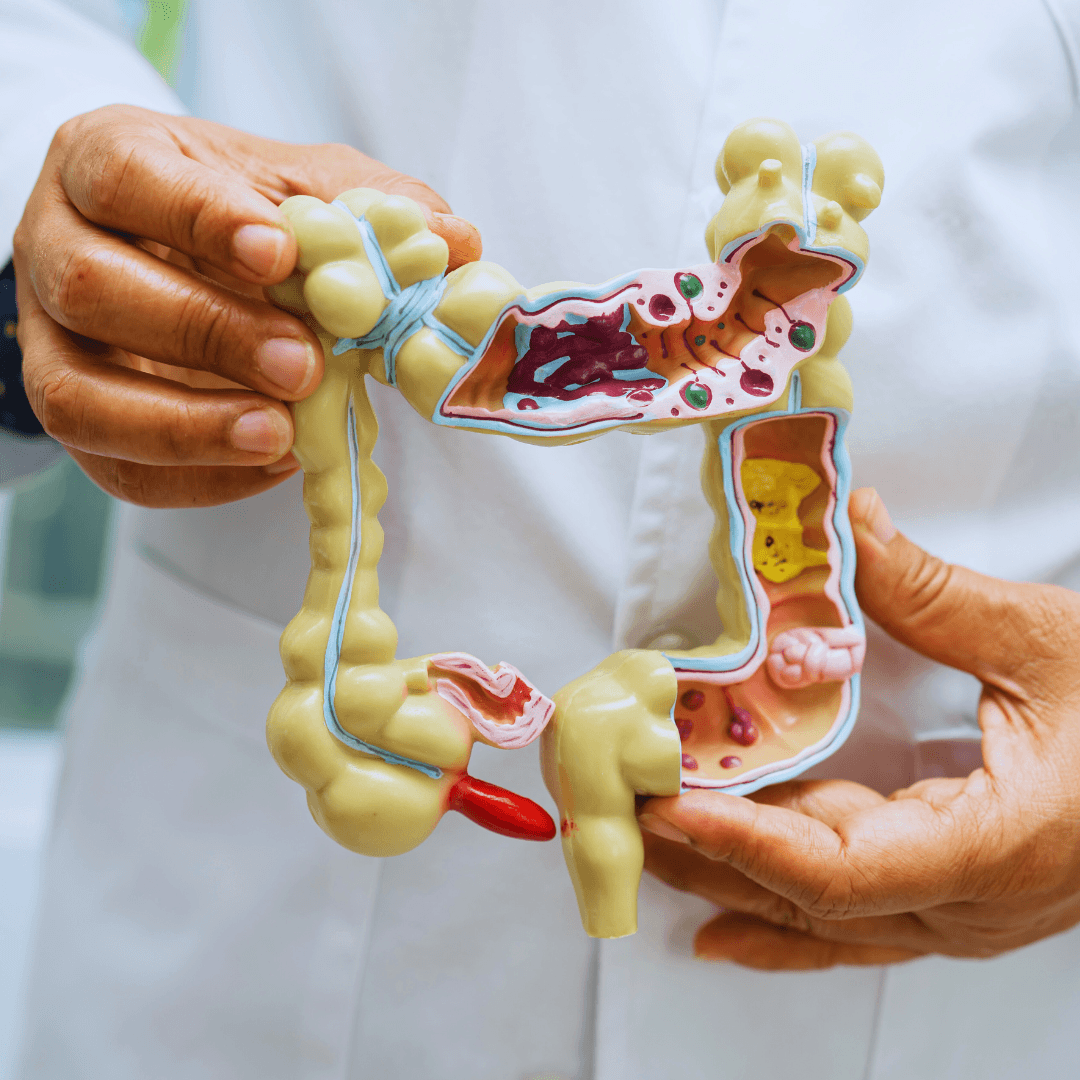
4. Digestive Issues
Abdominal woes like bloating, gas, and constipation are other complications of a vegan diet. One culprit is a sudden surge in fibre intake.
Fibre moves through your digestive system like a broom. However, your gut bacteria need time to adapt if you weren't previously a high-fibre eater.
This can lead to temporary bloating and gas as your microbiome adjusts to processing this new influx of roughage.
Another potential cause is difficulty digesting certain plant-based proteins, especially those found in legumes.
As these sugars reach the large intestine, gut bacteria ferment them. Discomfort and bloating may result from this fermentation.
5. Irregular Periods In Women
Disruptions in the menstrual cycle can occur on a vegan diet due to a few interconnected factors. One culprit is low body weight.
Hormonal balance depends on maintaining a healthy weight and falling below that point can throw off the complex hormonal dance that controls menstruation. Periods may be missed or irregular as a result.
Nutrient deficiencies also play a role. Iron, for instance, is essential for overall health and supports hormone production.
When iron levels are low, it can affect the regulation of your cycle. Similarly, vitamin B12 is involved in hormone production and red blood cell formation, which can impact menstruation.
6. Vision Problems
‘What are the symptoms of a bad vegan diet’ also include vision problems. Vitamin B12 deficiency can wreak havoc on your vision, acting like a dimmer switch on your optical clarity.
This essential nutrient nourishes the myelin sheath, a fatty layer protecting your optic nerve fibres. Without enough B12, this sheath weakens, disrupting the transmission of nerve signals from your eye to your brain.
The initial signs might be subtle – blurred vision as if peering through a hazy window. Left unchecked, more serious issues arise.
Optic nerve damage, called neuropathy, can develop, creating blind spots in central vision. This can make activities like reading or focusing straight ahead difficult, and in severe cases, permanent vision loss can occur.
7. Numbness Or Tingling Of Hands And Feet
As complications of a vegan diet, tingling sensations and numbness in your hands and feet can be like warning signals of a vitamin B12 deficiency.
Vitamin B12 acts like a conductor in your nervous system, ensuring smooth communication between your brain and body.
When B12 levels are low, this conductor stumbles, causing electrical messages to get garbled.
This can manifest as pins and needles pricking, numbness like your extremities are asleep, or even burning sensations in your hands and feet.
These symptoms typically start subtly and gradually worsen over time. If you're experiencing them alongside fatigue or vision problems, it's wise to consult a doctor to check your B12 levels.
FAQ
Is a vegan diet healthy for the long term?
Answer: Yes, a well-planned vegan diet can be a healthy choice for the long term. Packed with fruits, veggies, and whole grains, it offers vitamins, minerals, and fiber.
However, B12, iron, and omega-3 need extra attention. Planning with a dietitian and incorporating fortified foods can ensure you get all the nutrients you need to thrive!
Conclusion
In conclusion, a well-thought-out vegan diet can be healthful, but there may be hazards if you don't pay close attention to the nutrients you consume.
A vegan diet low in iron, calcium, vitamin B12, and omega-3 fatty acids can lead to deficiencies in these nutrients.
These inadequacies may result in anemia, exhaustion, weakness, and even melancholy, among other issues.
Speak with a qualified dietitian or your doctor if you're considering going vegan to ensure you're getting enough nutrition.
With careful meal planning and including various plant-based foods, you may reap the benefits of a vegan diet without sacrificing your health.
I trust you enjoyed this article about Complications Of A Vegan Diet. Please stay tuned for more blog posts soon. Take care!
JeannetteZ
>>>Please click here to read my Vegan Travel Guides To World Destinations<<<
>>>Want To Learn How To Create Delicious, Cruelty-Free, Healthy AND 100% Vegan Meals? Try These Awesome Vegan Cooking Courses With A Free 7-DAY MEMBERSHIP<<<
Your Opinion Is Important To Me
Do you have thoughts, ideas, or questions? I would love to hear from you. Please leave me your questions, experiences, and remarks about the Complications Of A Vegan Diet article in the comments section below. You can also email me at Jeannette@LivingTheVeganLifestyle.org.
Disclosure
This post may contain affiliate links. I earn from qualifying purchases as an Amazon Associate and other affiliate programs. Please read my full disclosure.
Here are links to some of my favourite articles:
Vegetarian vs Vegan – Which Is Healthier?

